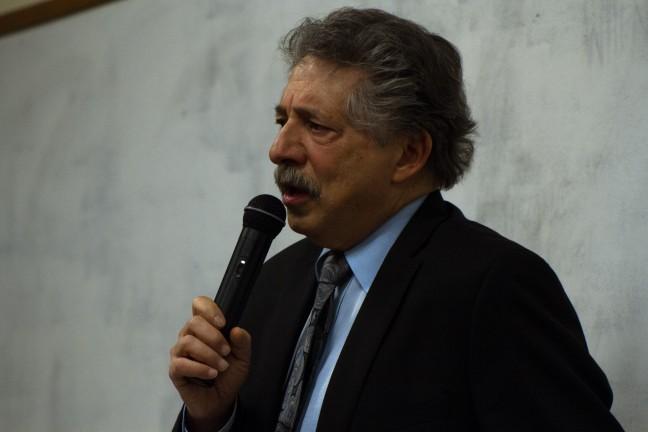Madison Mayor Paul Soglin held a news conference Monday to address ongoing concerns surrounding the closure of Madison’s Oscar Mayer plant.
Soglin discussed his conversations with Gov. Scott Walker pertaining to the closure, the city’s plans to assist 1,000 laid-off Oscar Mayer workers in finding new jobs, the importance of supporting public markets and the repurposing of the plant itself.
Oscar Mayer announced its intention to close its 90-year-old factory in Madison and move its headquarters to Chicago in early November. This closure is expected to result in 1,000 layoffs and may have a significant impact upon Madison’s economy.
Soglin said he discussed three important points pertaining to the recent plant closure with Walker.
The first was the retraining of displaced Oscar Mayer workers by the Wisconsin Department of Workforce Development.
“I asked the governor that he check with the Department of Workforce Development and make sure that organization has all the resources it needs,” Soglin said. “We cannot have them understaffed or underfunded at this critical moment.”
Soglin also spoke with Walker about the importance of supporting public markets to generate job growth.
Citing the success of states with strong public markets such as Massachusetts and New York, Soglin firmly advocated stronger support for public markets and the opportunities for job growth they create.
“As we know, public markets are a vital opportunity to create great jobs and have consequences of encouraging so many other businesses,” he said. “The governor told me that he would take a look at that as well.”
Department of Workforce Development, Madison College team up to help displaced Oscar Mayer workers
Soglin also discussed the importance of preserving the plant, citing decades of effort and millions of taxpayer dollars invested in the industrial site by the city as reasons for preserving and repurposing the factory rather than demolishing it.
The city of Madison, he said, has invested time and capital into constructing and maintaining special water and sewage infrastructure beneath the industrial site.
“For close to 80 or 90 years now, the city of Madison has invested tens of millions of dollars [into the site], particularly in terms of providing water to the site, and then the disposal of the water and the related waste,” Soglin said. “It would be a shame if that can’t be recaptured and utilized by a subsequent user.”
Soglin said Kraft-Heinz’s decision to close the Madison Oscar Mayer factory was simply a “matter of geography,” implying the loss of Oscar Mayer is no direct fault of the city or the state.
Soglin concluded by expressing optimism for the economic future of Madison in spite of the recent setback.
“Fortunately, Madison is doing quite well. We’re the economic engine that’s driving the state,” Soglin said. “We can deal with it.”













